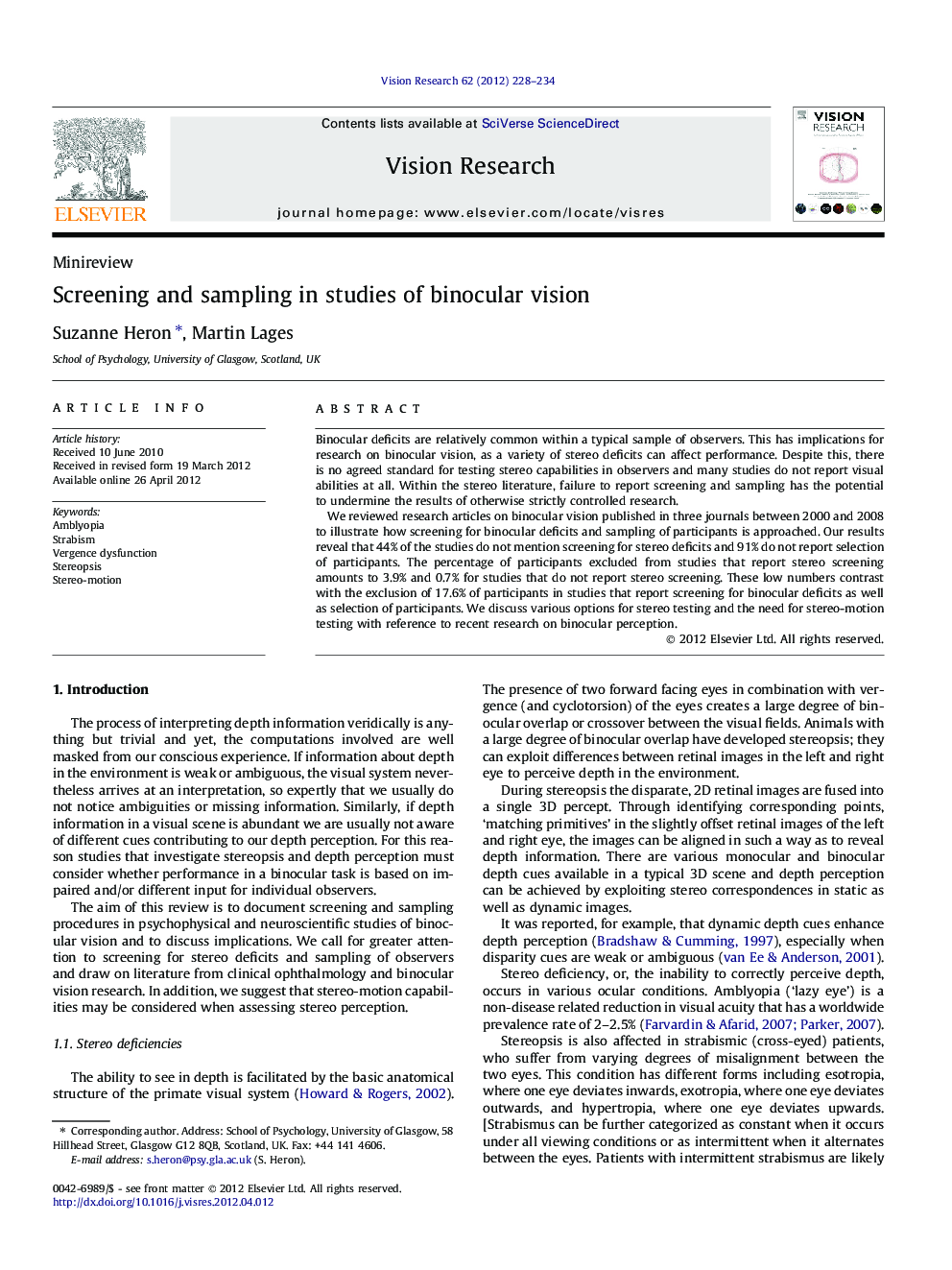| Article ID | Journal | Published Year | Pages | File Type |
|---|---|---|---|---|
| 6203716 | Vision Research | 2012 | 7 Pages |
Binocular deficits are relatively common within a typical sample of observers. This has implications for research on binocular vision, as a variety of stereo deficits can affect performance. Despite this, there is no agreed standard for testing stereo capabilities in observers and many studies do not report visual abilities at all. Within the stereo literature, failure to report screening and sampling has the potential to undermine the results of otherwise strictly controlled research.We reviewed research articles on binocular vision published in three journals between 2000 and 2008 to illustrate how screening for binocular deficits and sampling of participants is approached. Our results reveal that 44% of the studies do not mention screening for stereo deficits and 91% do not report selection of participants. The percentage of participants excluded from studies that report stereo screening amounts to 3.9% and 0.7% for studies that do not report stereo screening. These low numbers contrast with the exclusion of 17.6% of participants in studies that report screening for binocular deficits as well as selection of participants. We discuss various options for stereo testing and the need for stereo-motion testing with reference to recent research on binocular perception.
⺠Stereo deficiencies with unknown prevalence can affect performance in binocular tasks. ⺠Literature survey reveals 44% of studies do not report stereo screening and 91% no sampling. ⺠However, up to 17% of participants are excluded when stereo screening and selection are reported. ⺠We recommend that stereo screening and sampling is reported to avoid biased results. ⺠We also recommend screening of observers for static and dynamic stereo abilities.
